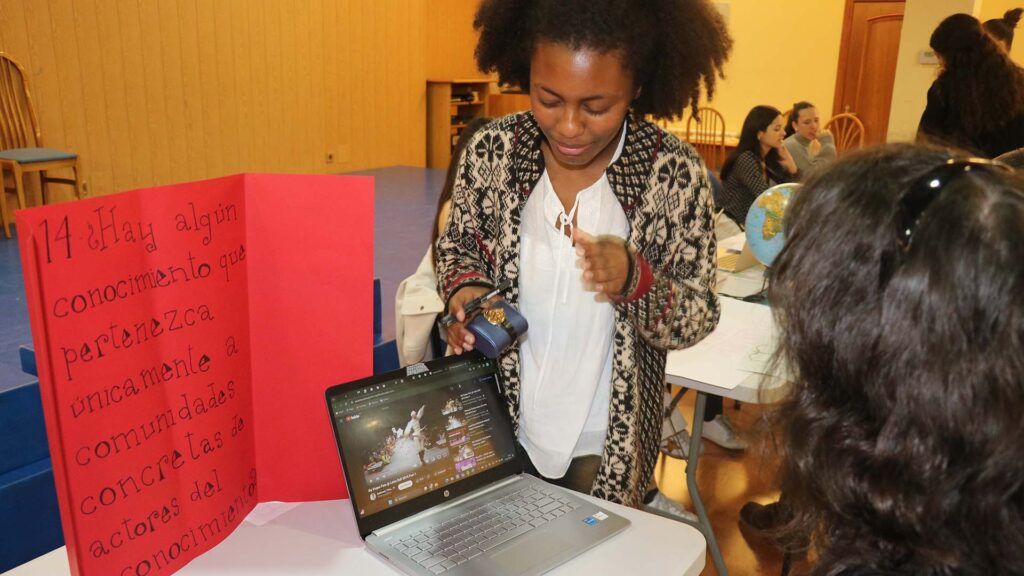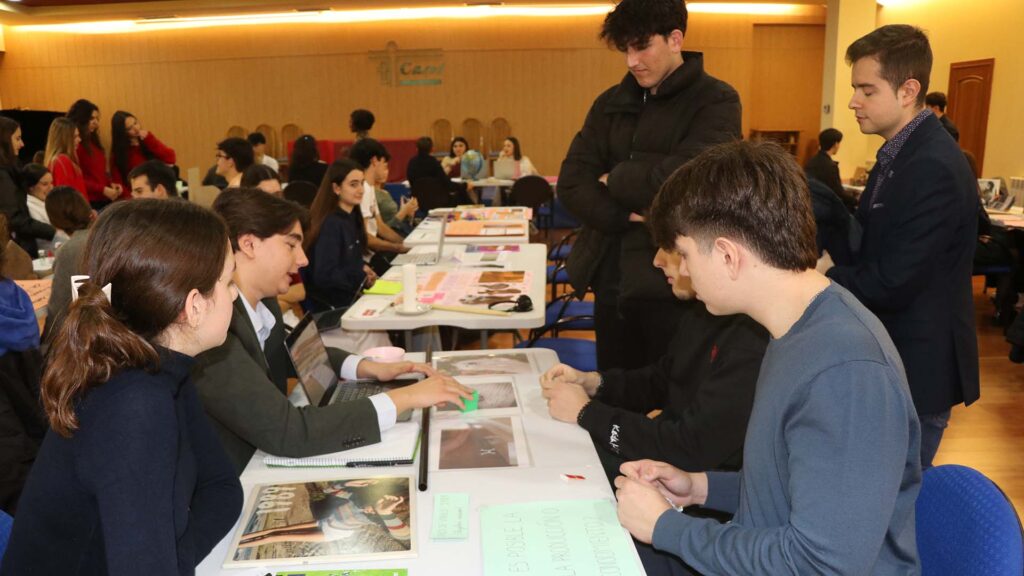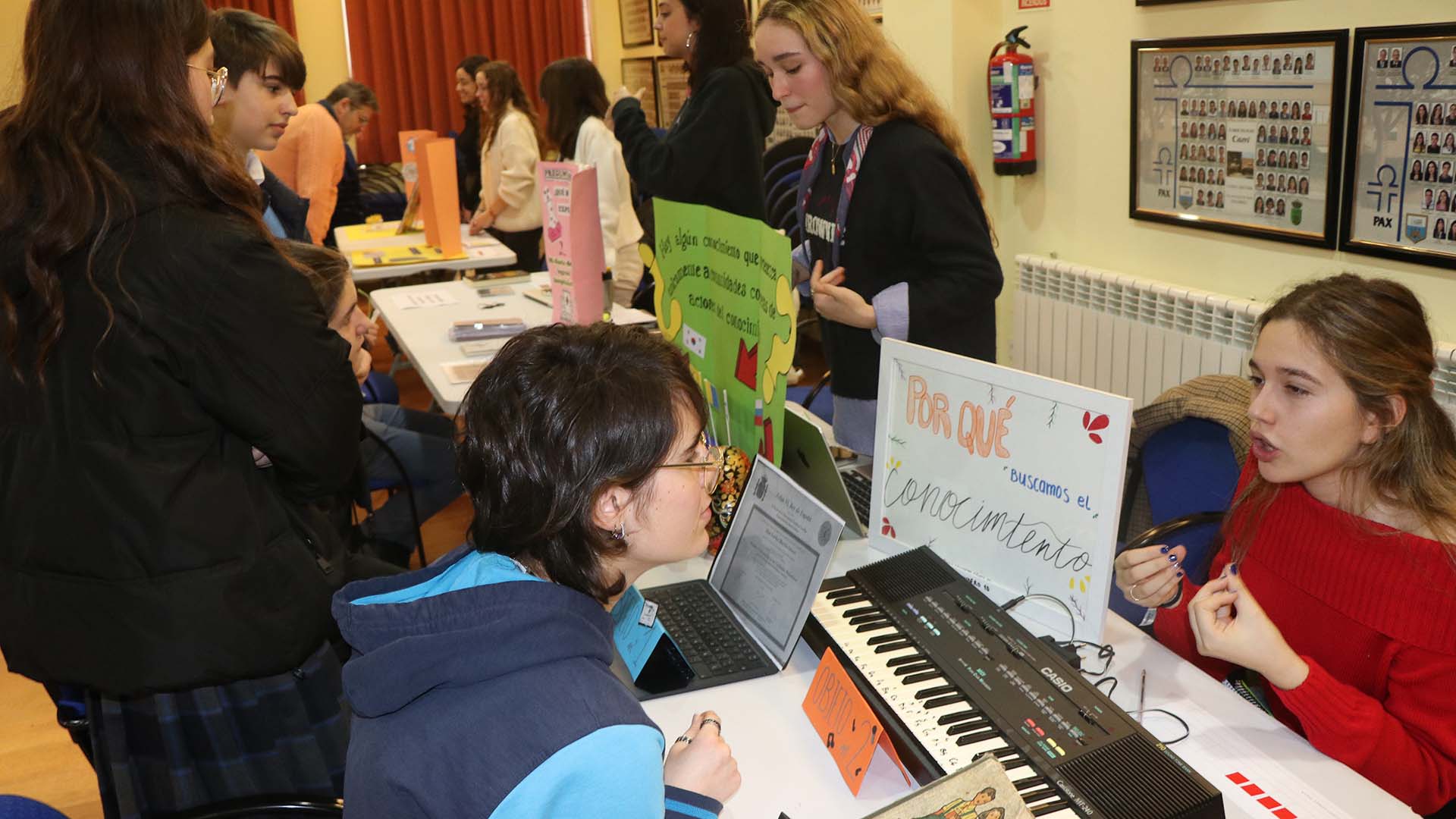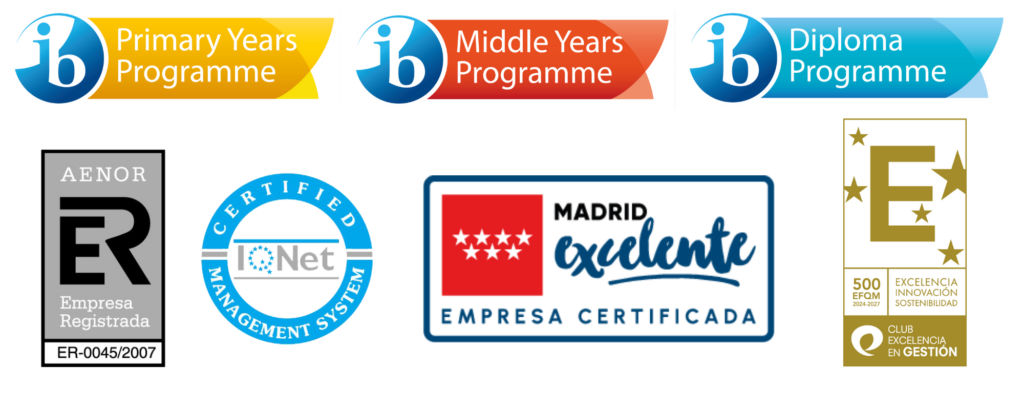This morning, pupils, teachers and parents were invited to the 1st Exhibition of works of art of the Theory of Knowledge. In the assembly hall, they were able to see how our students from 1st grade of Diploma Programme (International Baccalaureate), they develop their critical thinking skills while exploring concepts linked to the Theory of Knowledge and ask questions about their own world.
HOW HAS IT DEVELOPED?
In pairs, our students had a table for themselves on which they placed the question they had chosen from a closed list. Among them: what is the relationship between knowledge and culture? Is some knowledge more useful than others? Is there knowledge that only belongs to particular communities? Is there knowledge that only belongs to particular communities? What role does experience play in learning? His aim then, together with three objects, was to try to answer the questions of others (classmates, teachers, parents…). To reflect on and argue their answers.

WHAT IS THEORY OF KNOWLEDGE IN IB?

Theory of Knowledge is a core component of the Diploma Programme (IB). It is particularly interesting because it allows students to reflect on the nature of knowledge, identifying their own biases in learning. It invites them to be awake and alert to the world around them. Not to fall easily into deception. And to know in a responsible and mature way.
Thus, in a cooperative way, they have been helped to expand their vision of the world, learning more about it and about our responsibility as actors of knowledge.




